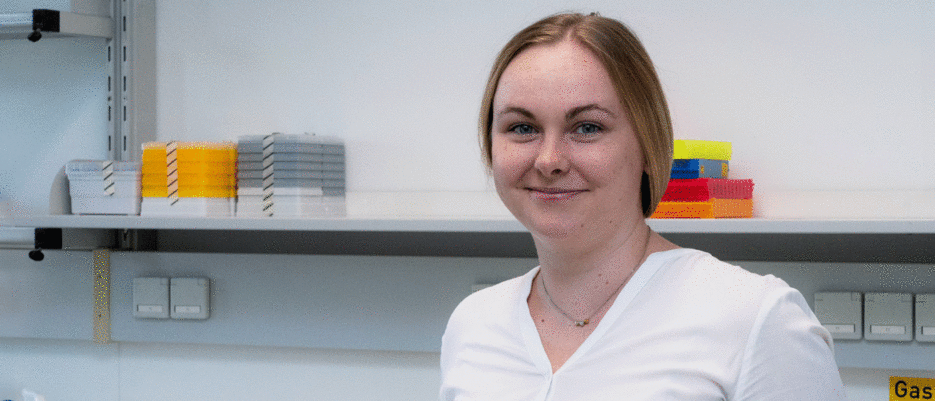Monika Litvinukova is a new junior research group leader at the Institute of Systems Immunology
03/22/2024In her new role and as part of the collaborative research center 1525 "Cardioimmune Interfaces” Monika Litvinukova aims to build upon her previous research.
Men and women develop and manifest a heart attack in very different ways. Monika Litvinukova is interested in how these differences reflect the interface between vessels and the immune system, and whether they could be utilized for a more personalized approach to the prevention and treatment of heart disease.
Studies must reflect the entire population
"A comprehensive understanding of gender-specific differences is essential for the progress of science and medicine," the researcher explains. These differences could significantly influence research findings and their applicability, affecting clinical practice and treatments. Future studies should therefore consciously include and analyze gender as a critical variable and thereby help to develop more individualized, effective, and equitable solutions in healthcare. "I strongly advocate for equal representation of men and women in research studies. Our research must reflect the entire population if we truly want to advance our understanding and meet the diverse needs of society."
The immunology site in Würzburg impressed not only with excellent research
Before joining Würzburg, Monika Litvinukova conducted research at the Munich Helmholtz Pioneer Campus investigating the effects of ploidy and fat accumulation in human liver cells, as well as how 3D cultures of liver organoids could be optimized and established as models for liver biology and aging. Before that she spent time at the Max Delbrück Centre in Berlin and the Wellcome Sanger Institute in Cambridge, where she researched, within Norbert Hübner’s and Sarah Teichmann's groups, the application of single-cell genomics in the study of human cardiac tissue, creating one of the first large scale human heart atlases.
The Würzburg Institute of Systems Immunology impressed the scientist not only with its excellent research reputation: "In addition to the excellent research, what attracted me most was the friendly and collaborative spirit that characterizes both the institute and the surrounding university and clinic. This position offers me an ideal opportunity to be be part of a community that is committed to making a significant impact in cardiovascular research through rigorous research, education, and clinical practice," explains Monika Litvinukova her decision.
Monika Litvinukova wants to expand our understanding of how vascular cells regulate the immune response in the heart, and vice versa, both in homeostasis and in cardiomyopathies and myocardial infarction.
Research Monika Litviňuková



